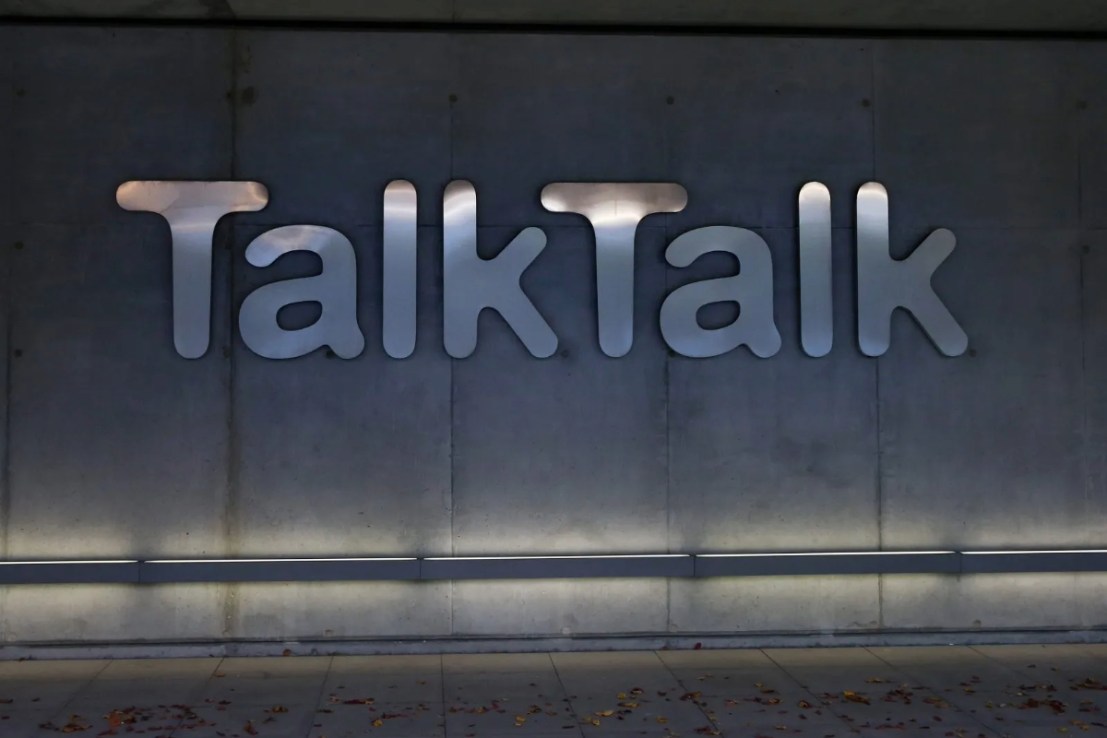Talktalk: The telecoms titan on the brink
In a defining few months, Talktalk needs to refinance nearly a billion pounds of debt, with bidders circling. Will it survive?


It takes something big for the volume of news around a telecoms firm to eclipse that of its customer complaints.
Broadband and mobile network providers are constantly dealing with the ire of customers who have taken to social media to complain about their patchy internet, or weariness with a laborious installation process.
But bosses at Talktalk, which sits in the middle of the pack for Ofcom complaints, will now look back enviously on the days when the most pressing issue on their plate was a deluge of messages from irate users, after the future of the telecoms firm was plunged into yet more uncertainty this week.
Reports emerged over the weekend that the UK’s fourth largest broadband provider – which supplies internet and telephone coverage to over 2m customers – was engaged in a mad dash to secure a £200m lifeline investment as its future hung in the balance.
But with a private equity giant sniffing around the group’s wholesale division, and another £600m debt time bomb firmly on the horizon, securing the £200m lifeline investment is just the first item in an unenviable to-do list.
All of which, combined with the company’s widening losses in its most recent financial report, adds up to what will spell a portentous episode for a company that shook up an antiquated telecoms industry.
Talktalk: disruptor-turned-stuttering veteran
Talktalk was founded in 2003, when Sir Charles Dunstone, the founder of Carphone Warehouse, established it as a subsidiary of the mobile phone retailer with the bold promise of allowing customers they could could talk to each other for free, forever.
Having remained part of its parent company until 2010, it demerged and floated on the London Stock Exchange as a standalone company, reaching a market cap of £4.5bn within five years.
But wounded by a high-profile data breach and cyber attack, the half-decade that followed was characterised by the firm battling to stem a constant outflow of customers as the sector ballooned with shiny new rivals.
Its share price collapsed from an all-time high of 415p to just 69p in 2020, prompting Sir Charles, its chairman, to team up with notorious Toscafund – a investment firm run by Martin Hughes – to take the company he founded back into private ownership.
‘The slavery of the free’
The deal was highly leveraged and, once complete, saddled the firm with the billion pounds of debt which Charles and Hughes borrowed in order to get the deal over the line.
City A.M. understands the debt is split into three main tranches. The first is a £75m securitisation against some of its assets. The second is a revolving credit facility – the equivalent of company’s overdraft – worth £330m. Added to which is the hefty £685m of corporate bonds it issued in 2020 to seal Sir Charles and Toscafund’s ability to take Talktalk off the London Stock Exchange.
Talktalk bosses were able to refinance its securitisation in September last year with private equity giant KKR, but the other two remain a major headache for the firm’s top brass.
Most pressingly, it needs to resolve its revolving credit facility, which is up for renewal in November, but the successful agreement of this is contingent on fresh investment, which prompted Sir Charles to commit to the £200m lifeline.
Also looming over it like a dark cloud are the hundreds of millions of pounds it borrowed from corporate investors through bonds, which will reach maturity in February; a dangerously tight timeline.
Crucially, both were taken out a time when debt was cheap, money was easy to come by and lenders were optimistic about Talktalk’s new chapter in private hands. Three years on, and the lending environment could hardly be more different.
Interest rates are five per cent higher, and Talktalk’s own financial position and outlook has deteriorated dramatically, which will ultimately mean the price at which creditors will consider lending to it is likely to be painfully high, relative to its last loans.
Analysts at CreditSights, dubbed this tightrope, and Talktalk’s timeline for agreeing a new refinancing, “uncomfortably tight” and declared its margin for error was “very thin”.
Demerger: all talk no action?
The firm’s solution to the credit mountain is radical. Agreed at a crunch board meeting towards the end of 2022, its senior leadership resolved to demerge the firm’s three divisions, which comprise the prominent consumer telecoms company, a business-to-business offering and its wholesale firm, now called PlatformX Communications.
But the process has been plagued by non-committal bidders refusing to table a formal bid, knowing full well that Talktalk’s debts could force it to accept a lower valuation. Virgin Media’s ongoing interest in Talktalk’s consumer unit, first made public in February, is understood not to be overly advanced. Meanwhile, City A.M understands Australian private equity behemoth Macquarie is enamoured by PlatformX Communications, and is reported to be mulling £400m investment. Negotiations are said to be ongoing but are yet to reach any meaningful conclusion.
Securing the Macquarie equity would be the lifeline the business so desperately needs. It would give it the breathing space – and means – to refinance much of its debt, and also – City A.M. understands – enable Sir Charles to fold the rest of Talktalk into his private equity firm, Freston Ventures, where it would join the likes of Five Guys and Purple Bricks in Dunstone’s portfolio.
If it falls through, the firm will be forced to go cap in hand to lenders for what is referred to as an ‘amend and extend’ deal until extra investment to inject into the business is found. There are dire consequences should it fail – with insolvency a prospect.
But Talktalk remains confident that it will secure the lifeline source of capital. On a bondholder call earlier this month, James Smith, the firm’s chief financial officer said: “We anticipate agreement on new capital investment into the business in the near future, and discussions to achieve that are ongoing.
“Engagement continues with a potential new investor, together with potential new lenders.
“At the same time, the Group’s existing shareholders have confirmed their intent to provide new funding of over £200m into the Group to support working capital and operational costs.
“Those shareholders and the company are in dialogue with existing Group lenders, or their advisers, regarding the optimal route to put that funding into the business.”
What next?
If the company is able to find remedy for the firm’s credit and ownership model then attention will turn to the more prosaic matter of fixing its day-to-day performance, which has continued to underwhelm.
Talktalk’s pre-tax loss swelled to £127m in the year ended March, as it battled with rising costs and an increasingly packed field of big competitors. The pinch has led it to haemorrhage customers, losing 334,000 over the year.
“The company has struggled in a tough operating environment,” Paulo Pescatore, a telecoms analyst and founder of PP Foresight tells City A.M. “Rivals have stepped up efforts, and we’ve seen some come together in the form of corporate activity given the importance of scale. At the same time, Talktalk has gone backwards.”
“It’s a disastrous situation, and Talktalk has very few options left.”



